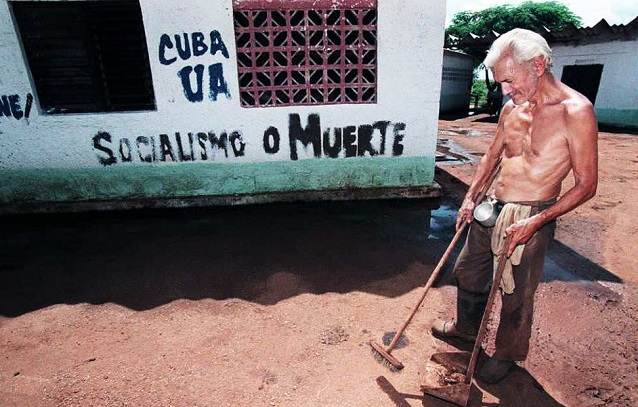CUBABRIEF: Millions of Taxpayers Around the World have Bailed Out The Castro Dictatorship. None of them are Americans.

Reuters reported on October 30th that “wealthy nations grouped together in the Paris Club of creditors have waived Cuba’s annual payment for restructured debt but plan to impose a penalty.” The article then makes the claim that “this year marks the first time Cuba has missed the entire payment due by Oct. 31 since the restructuring agreement was signed in 2015, though it fell short of full payment last year as well.” Although accurate, it leaves out the prior decades that the Castro regime played the role of a dead beat whether or not economic conditions were good or ill for Havana.
The 2015 restructuring and forgiveness of debt with the Castro dictatorship, a byproduct of the detente with President Barack Obama, is providing a lifeline to the Castro regime. This is a regime that Wall Street Journal columnist Mary O’Grady observed in 2014 that “since 1959, Castro Inc. has racked up unpaid foreign debt and other claims totaling nearly $75 billion—including $35 billion owed to the Paris Club. Cuba is one of the world’s most notorious deadbeats, and the Cuban economy is moribund.”
In 2002 the former Executive Director of the Center for a Free Cuba, Frank Calzon, offered an assessment of U.S. economic sanctions, “say what you will about the U.S. embargo, but one of its best-kept secrets is that it has saved U.S. taxpayers millions. Because of the embargo, American banks aren’t among the consortium of creditors (among them Spanish, French, Canadian banks) known as ”The Paris Club.” A consortium that has been waiting for years to be paid what’s owed.”
Mr. Calzon gave a conservative assessment when he claimed that U.S. taxpayers had saved millions in bailouts. In reality, the embargo has probably saved American taxpayers hundreds of millions over the years. Consider that the above mentioned Paris Club in 2015 forgave $8.5 billion of $11.1 billion debt that the Castro regime owed. And Havana, even before COVID-19, was failing to meet its remaining obligations on its debts.
These patterns stretch back over the entire history of the Castro regime, and the leadership, despite claims in the press has not changed, and this is due to ideology. Scott B. MacDonald writing in Global Americans on November 2nd observed that “despite the revolution coming to power in 1959, Cuba has remained considerably dependent on external props to maintain a generally inefficient command economy, dominated by large state-owned companies backed by the Communist Party’s inner court and the military.” The rest of the article is worth a read, but MacDonald errs when he asserts Cuba “is headed by Miguel Díaz-Canal, the first non-Castro family member to preside over the country.” This is wrong on two counts.
Although General Raul Castro handed over the office of the presidency to his hand picked successor Miguel Díaz-Canel on April 19, 2018. Havana used this to give the false impression that there was a transition in Cuba. The reality is that General Castro remains head of the Cuban Communist Party and in control of the military, and in the Cuban Constitution that makes him the maximum authority.
General Alberto Rodriguez Lopez-Callejas, Raul’s former son-in-law, runs the Cuban economy. Raul Castro’s son, Colonel Alexandro Castro, who negotiated the normalization of relations with the Obama Administration, is an intelligence officer with close ties to the secret police. Both are key posts for running the country, and are directly tied to the Castro family and General Castro.
Osvaldo Dorticos, was another president not named Castro in Cuba following the consolidation of communism under the Castro brothers in 1959. Diaz-Canel, like Osvaldo Dorticos who was president of Cuba from 1959 to 1976, over the past two and a half years has done the bidding of the Castros.The succession was not to make Miguel Díaz-Canel the new dictator but to maintain the Castro dynasty in power. Raul Castro and the Castro family continue to preside over the country.
This is also why patterns of repression continue to remain similar. The Christian Post reported on November 2nd that in the city of Santiago de Cuba regime officials “demolished a church that has long been a target of the communist regime and arrested a pastor who streamed the demolition live on social media, a human rights group has reported.”
Millions of taxpayers around the world have bailed out the Castro dictatorship, and have subsidized repression. None of them are Americans, thanks to the U.S. Embargo on the Castro regime.
RELATED ARTICLES:
Exclusive: Wealthy creditors give Cuba a pass, but will impose penalties
Cuban authorities destroy church, arrest pastor who filmed demolition
EDITORS NOTE: This Center for a Free Cuba column is republished with permission. ©All rights reserved.

